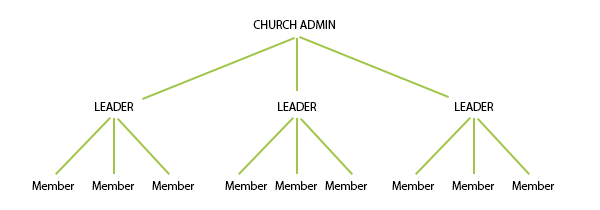Leader Resources
EXERCISES
- Review the memory verse of the week and talk about how it relates to the Truth section.
- Review the Pentateuch, Historical books, Poetic books and Major Prophets of the Old Testament.
- Someone may be ready to recite all 66 books of the Bible by now.
SUGGESTED DISCUSSION
- Truth – You can discuss any of the in Bible questions you would like to address. Here are some tips that may help:
- Genesis 1:24-31; 2:7-9 – The final, crowning act of God’s creative masterpiece was the creation of human beings. Think of our creation as the finale of a symphony, which ties together the themes of a symphony in dramatic crescendo. Our creation on the sixth day along with land animals reminds us that we are creaturely – made of the stuff of earth. However, several details in the creation texts show that human beings are unique and should not be classified with animals. A list of those unique details can be found on page 5 of this week’s material.
- Genesis 5:1,3 – Seth was born in the image and likeness of Adam. This helps us to understand that being made in God’s image means to be His child. Children bear the likeness of their parents. All people bear the likeness and image of their Father God. This reinforces the truth that we were designed to experience God in a parent/child relationship. Without this experience we can never know true significance.
- Genesis 9:6 – This verse specifically ties the value of human life to the image of God. The fact that all people, even in their fallen state, bear God’s image is the foundation of human value and dignity. The image of God in human beings makes them of greater value to God than the rest of His creatures. This is why purposefully killing a person is morally evil (murder), but the purposeful killing of an animal for food is not, and cannot be called murder.
- Psalm 8 – Imagine that in this Psalm David is lying under a star lit sky taking in the magnificence and scope of the heavens. It makes him feel very small and relatively unimportant in the grand scheme of creation. Yet, David remembers the position humanity was given on the 6th day of creation – the blessing of the image of God and the authority to rule God’s creation in service to Him. As he reflects on this, he interprets the meaning of that event as God’s act of crowning human kind with His glory and giving them honor above all His created works. The image of God can be thought of as an infusion of God’s glory in the human spirit. David’s thoughts remind us that humanity, no matter how broken (criminal, pagan, mentally-challenged, impoverished, oppressed), is of greater worth to God than the heavens that seem so magnificent in our eyes.
- Psalm 139:13-18 – This passage looks at the creation of individuals rather than of the whole race. It offers an intimate portrait of the care and detail with which God designs each person and the life that they will experience. This reminds us of God’s specific love and providential care, not just for us, but for me.
- Truth – Here are the main points about the image of God that you’ll want to make clear:
- Design creates purpose. Significance is experienced when we fulfill our purpose.
- The image of God makes humanity God’s most valuable creation to Him.
- The image of God defines humanity as in a class of their own. God does not classify us as animals.
- The image of God gives us the capacity to commune with God as His children.
- The image of God gives us the capacity to receive stewardship over the earth.
- Equipping – Engage your JG in a discussion about believing, and living in light of, the implications of the Bible’s teaching on the image of God. Some may want to confess they have a hard time with some of the implications listing in the material. Others may have questions about what these implications mean for real life.
- Accountability – Allow time for smaller groups of 2 or 3 to ask accountability questions and pray for one another.
- Mission –Continue the discussion of helping people investigate Christianity using the Life Issues booklets as a tool for making the gospel known in word. Discuss the question, “Is the Bible God’s Word?” and a few of the questions from the first Life Issues booklet.

